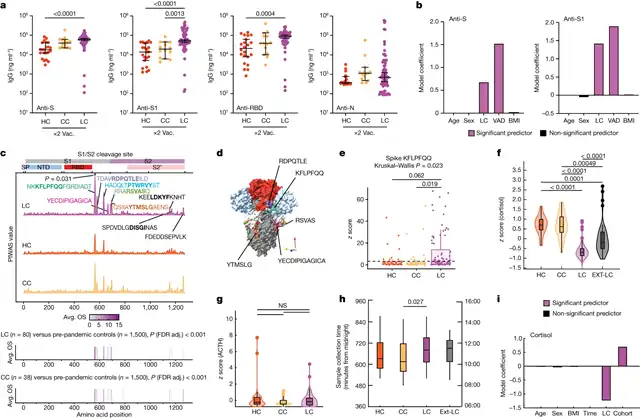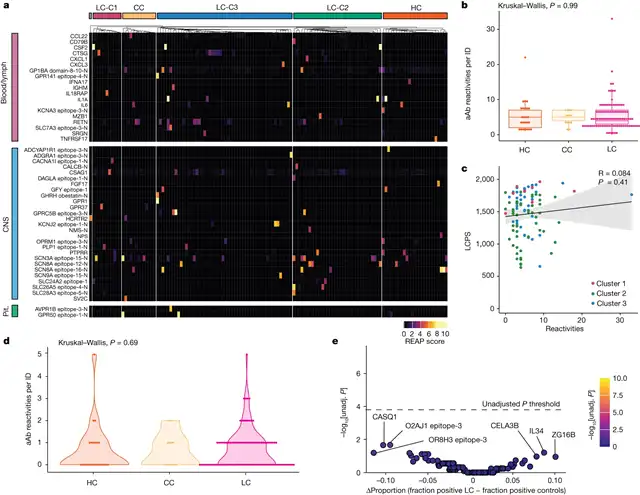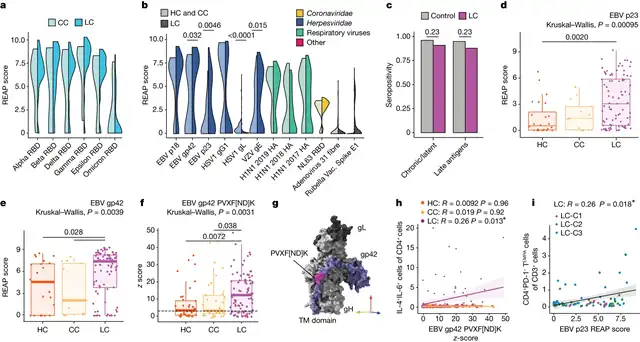Varied Immune and Hormonal Responses in Long-COVID Patients
- Normal Liver Cells Found to Promote Cancer Metastasis to the Liver
- Nearly 80% Complete Remission: Breakthrough in ADC Anti-Tumor Treatment
- Vaccination Against Common Diseases May Prevent Dementia!
- New Alzheimer’s Disease (AD) Diagnosis and Staging Criteria
- Breakthrough in Alzheimer’s Disease: New Nasal Spray Halts Cognitive Decline by Targeting Toxic Protein
- Can the Tap Water at the Paris Olympics be Drunk Directly?
Yale University Scientists Uncover Varied Immune and Hormonal Responses in Long-COVID Patients
- Should China be held legally responsible for the US’s $18 trillion COVID losses?
- CT Radiation Exposure Linked to Blood Cancer in Children and Adolescents
- FDA has mandated a top-level black box warning for all marketed CAR-T therapies
- Can people with high blood pressure eat peanuts?
- What is the difference between dopamine and dobutamine?
- How long can the patient live after heart stent surgery?
Yale University Scientists Uncover Varied Immune and Hormonal Responses in Long-COVID Patients
A recent study conducted by researchers at Yale School of Medicine and the Icahn School of Medicine at Mount Sinai has revealed distinct immune and hormonal responses in individuals experiencing long-term symptoms of Chronic Obstructive Pulmonary Disease (Long-COVID) compared to those without these symptoms.
The study, involving 268 participants, highlighted significant differences in antibody and cortisol levels, offering insights into potential treatment approaches. However, the complexity of Long-COVID poses challenges for the development of effective therapies.

In a new investigation, scientists found that individuals exhibiting long-term symptoms such as brain fog, confusion, pain, and extreme fatigue after recovering from COVID-19 displayed different immune and hormonal responses compared to those without prolonged symptoms. This identification of distinct reactions aids scientists in uncovering the underlying causes of this debilitating condition for the first time and exploring potential treatment avenues. In the United States, approximately 7.5% of individuals infected with the SARS-CoV-2 virus develop Long-COVID.
The co-first author of the study and Sterling Professor of Immunobiology at Yale University, Akiko Iwasaki, stated, “If you are a doctor doing routine lab tests on these patients, you wouldn’t find these signals.”

In this research, blood samples from 268 individuals were analyzed, including those who had experienced Long-COVID symptoms for an average of one year, those who had recovered completely from COVID-19, and those with no known history of infection. Researchers observed significant differences in circulating antibodies and other immune system cells between Long-COVID patients and individuals in the other groups.
Furthermore, the study revealed an increase in circulating antibodies that help the body fight non-COVID-19 viruses, especially those known to resist the Epstein-Barr virus associated with various cancers. Additionally, cortisol levels in Long-COVID patients were significantly lower. Cortisol is a steroid hormone released by the adrenal glands under stress.

While these findings unveil key biological processes associated with Long-COVID, the complexity of individual responses poses a considerable challenge in developing effective treatments for the disease, according to the authors.
David Putrino, co-first author of the study, Professor of Rehabilitation and Human Performance at the Icahn School of Medicine at Mount Sinai, and Director of the Cohen Complex Chronic Disease Rehabilitation Center, stated, “There is currently no specific treatment for Long-COVID because it is a disease that permeates complex systems such as immune and hormonal regulation.”

However, Iwasaki mentioned that the new insights provide crucial clues that may aid in the development of new diagnostics and therapies. She remarked, “Once we have more information about these signals, we can start thinking about designing the right trials to treat this disease.”

The results of the study were recently published in the journal “Nature.”
Yale University Scientists Uncover Varied Immune and Hormonal Responses in Long-COVID Patients
(source:internet, reference only)
Disclaimer of medicaltrend.org
Important Note: The information provided is for informational purposes only and should not be considered as medical advice.



